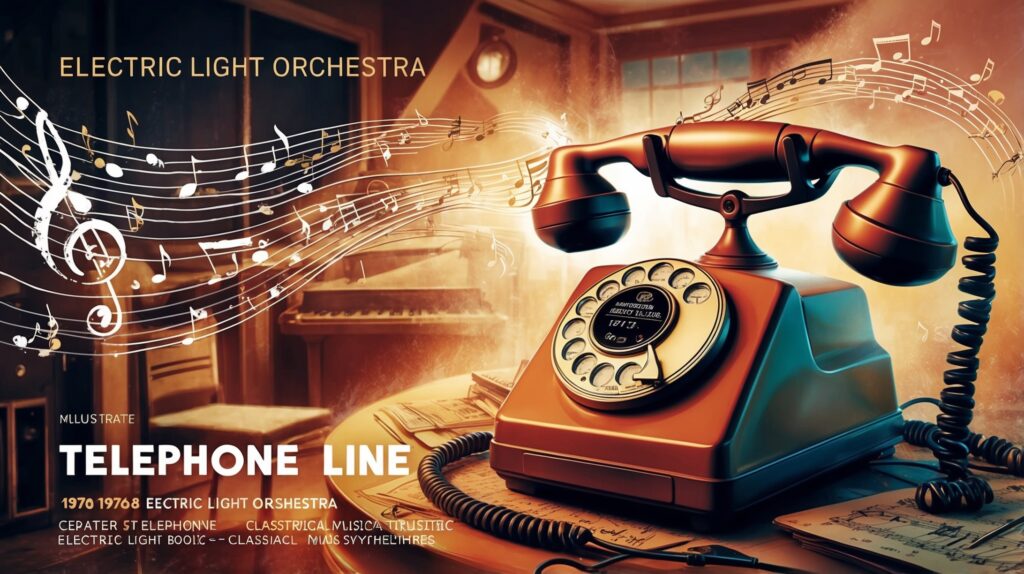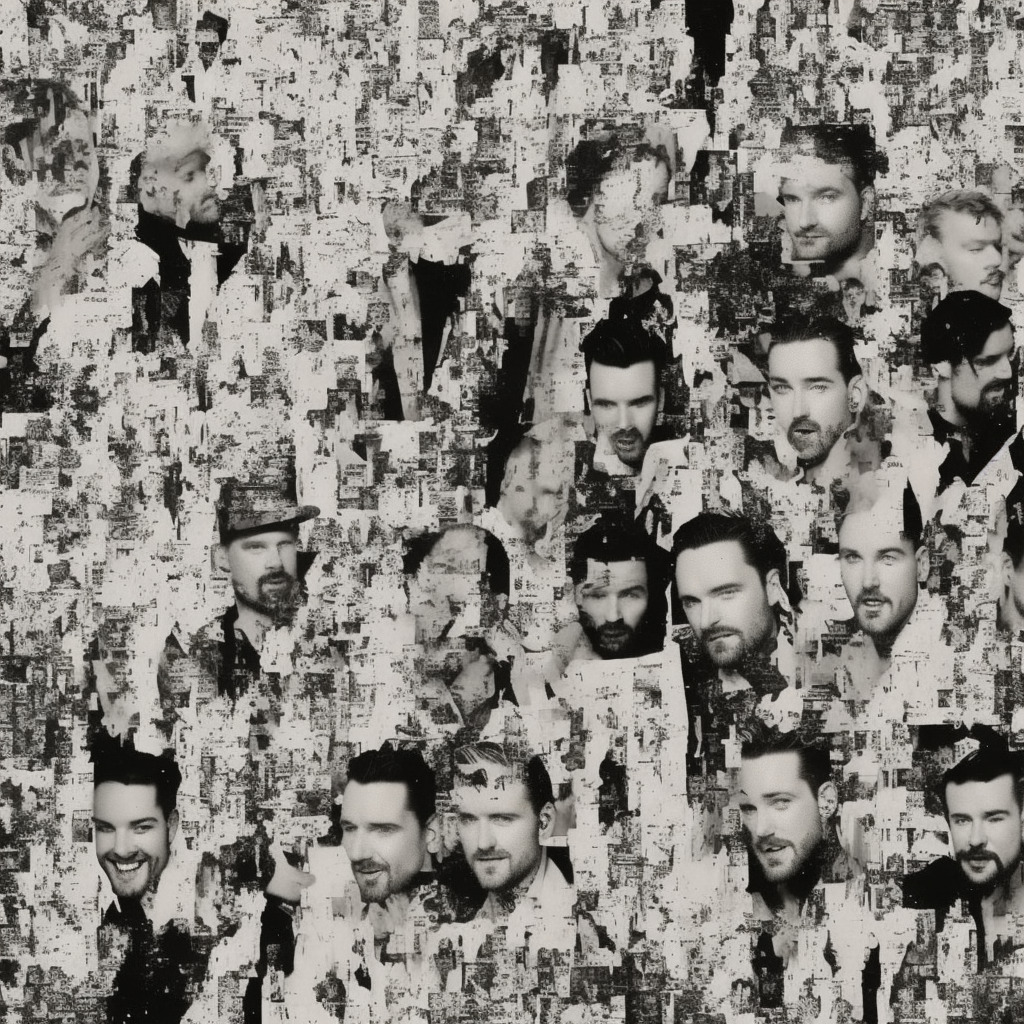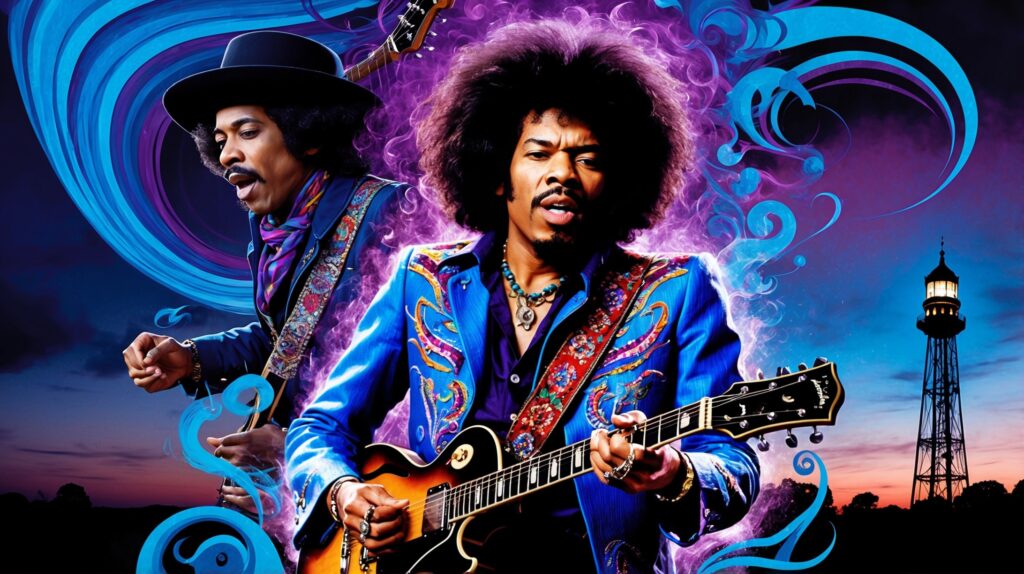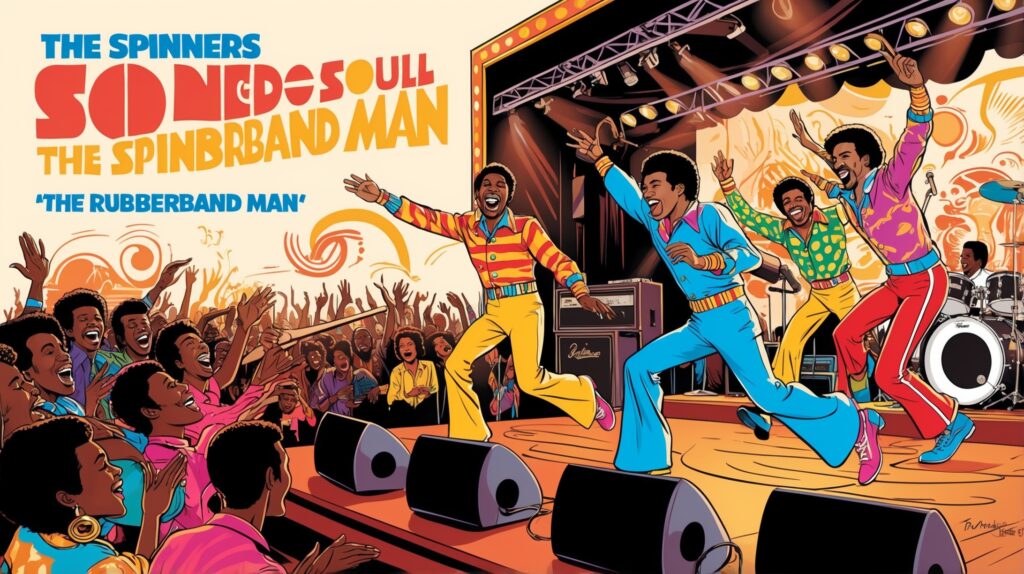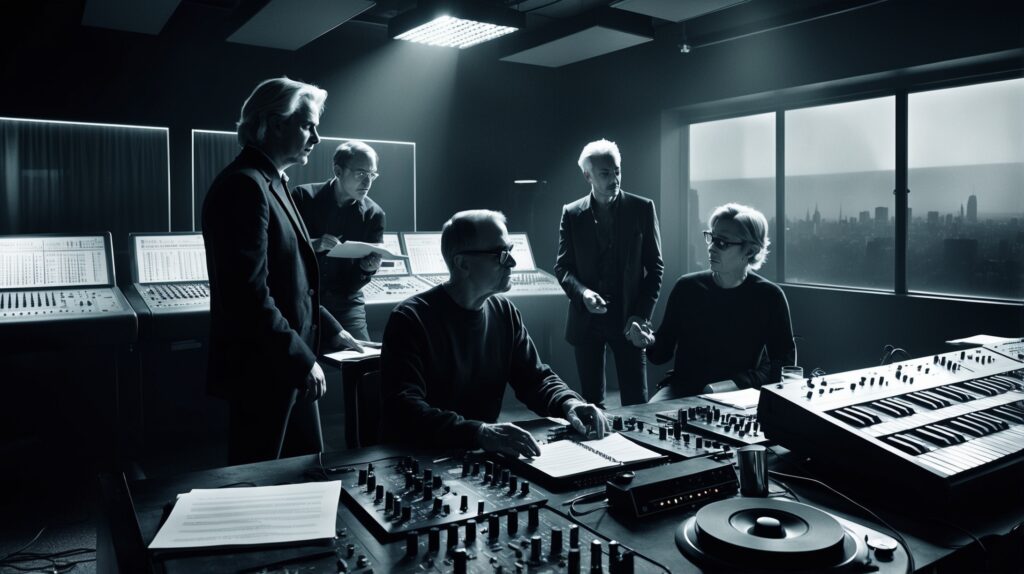Electric Light Orchestra: Masters of Sonic Innovation
Explore the artistic journey of Electric Light Orchestra, a band famed for its symphonic rock innovations and the significant impact of ‘Telephone Line’ in their illustrious career.
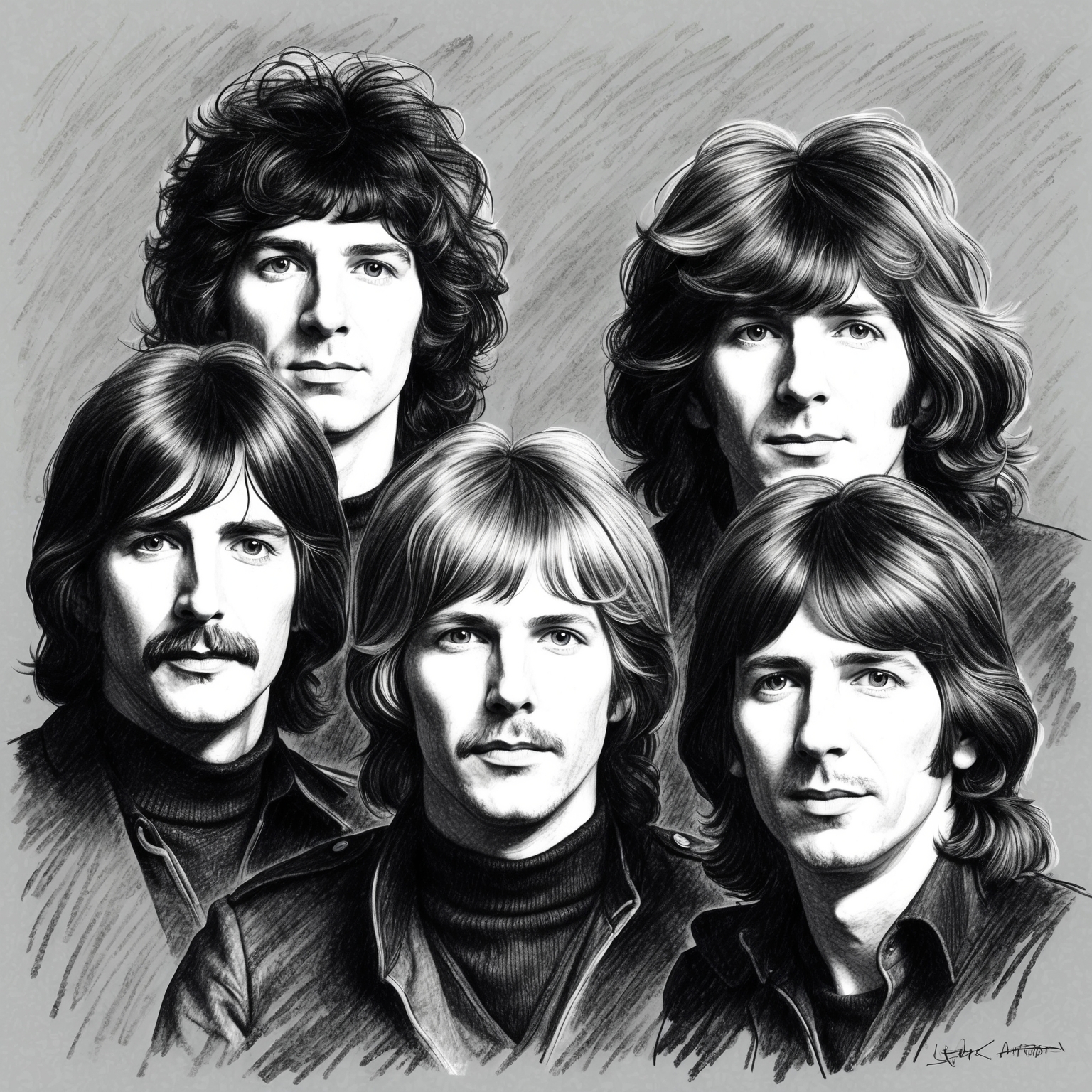
Electric Light Orchestra (ELO), founded by the ingenious Jeff Lynne and Roy Wood in 1970, emerged as a bridge between classical music sensibilities and rock ‘n’ roll, encapsulating a unique sound that had both mass appeal and artistic depth. “Telephone Line,” a single from their sixth studio album, A New World Record, highlights the band’s versatility and musical evolution. The song stands as a testament to ELO’s ability to weave orchestral strings and rock rhythms into something truly vibrant and emotive, capturing the zeitgeist of the late 1970s.
In their formative years, the members of ELO, including Lynne, Wood, Richard Tandy, and Bev Bevan, were driven by an ambitious quest to craft a sound that was unlike anything else on the airwaves. Their early experiences in bands like The Move laid the groundwork for ELO’s unique style, characterized by intricate arrangements and elaborate production techniques. As musicians, they were committed to creating songs that transcended the standard rock formula, incorporating elements of classical symphonies that set them apart.
During the era surrounding the release of “Telephone Line,” ELO was at the pinnacle of its creativity and popularity. The mid-to-late 1970s saw them collaborating with a diverse range of artists and producers, levering their creative process to produce hits that resonated deeply with a global audience. While the song reflects an aesthetic coherence that was gaining traction in the rock scene, it also underscores the rich textural innovations ELO brought to popular music, redefining production standards for future generations.
Exploring the Mind Behind the Melodies: Jeff Lynne’s Role in ‘Telephone Line’
Jeff Lynne, the composer of ‘Telephone Line’, is celebrated for his innovative blend of symphonic elements and rock. His skills shaped the song’s emotional depth and are a testament to his legacy in rock music.
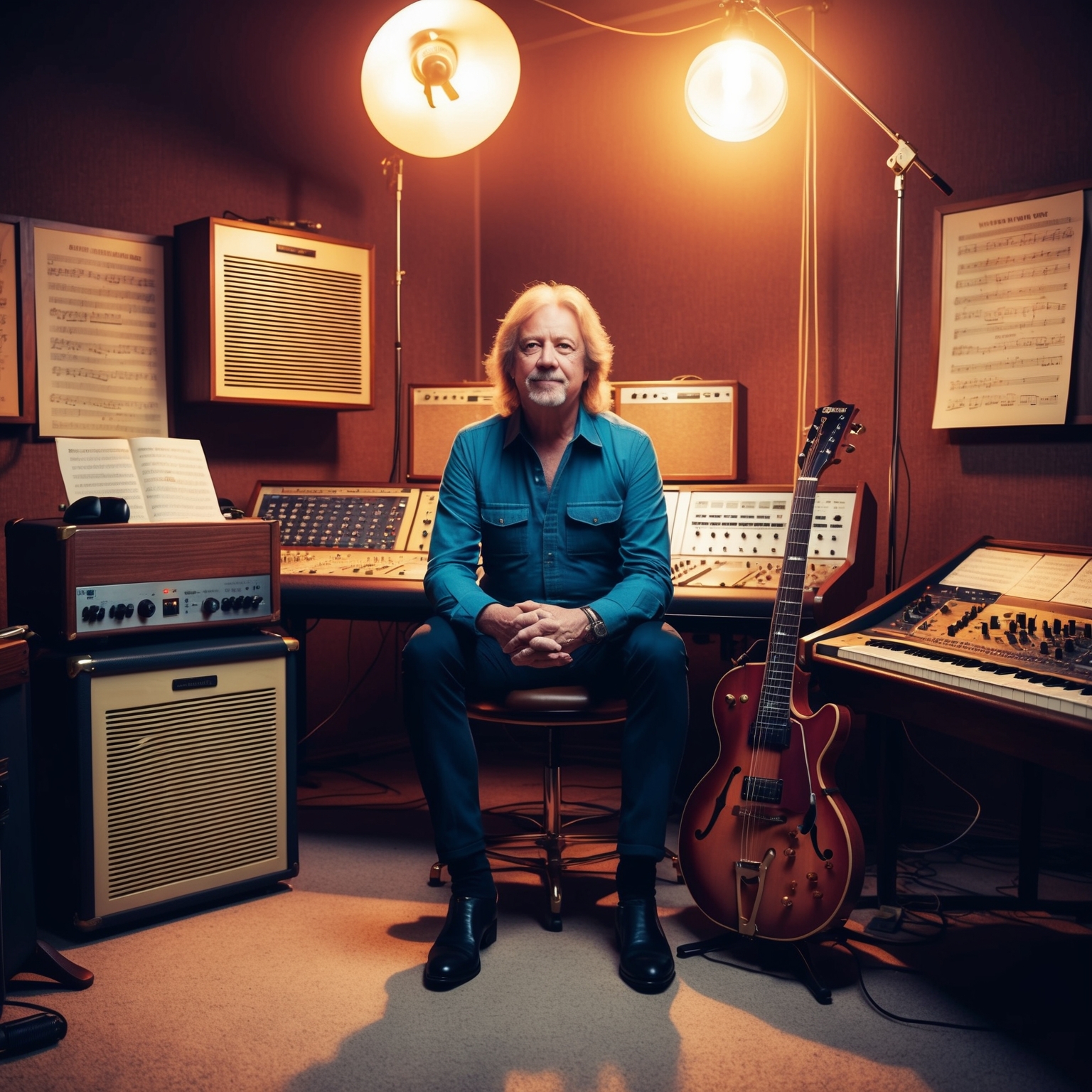
Jeff Lynne, the mastermind behind Electric Light Orchestra (ELO), is the composer of the enchanting song ‘Telephone Line’. Born in Birmingham, England, Lynne’s early exposure to music was shaped by the vibrant sounds of the 1960s. Through his passion for blending rock with classical elements, Lynne has emerged as a pivotal figure in the evolution of modern rock music, mainly through his leadership of ELO. His multi-instrumental talents and innovative production techniques have been key factors in crafting the band’s unique sound.
In terms of musical style, Lynne is renowned for his ability to combine symphonic textures with pop-rock elements, creating a sound that is both rich and accessible. Deeply inspired by the Beatles, Lynne’s compositions often reflect a careful balance of harmony, melody, and lyrical depth. His collaborations have been illustrious, including work with members of the Beatles, Tom Petty, and Roy Orbison, showcasing his versatility and enhancing his recognition as a musician and producer.
When it comes to ‘Telephone Line’, Lynne’s role was multifaceted. As the composer, he intricately wove together elements that give the song its emotional depth and longing. His signature string arrangements and layered vocals create an atmosphere of nostalgia and yearning, perfectly complementing the song’s theme of communication and connection. The seamless interplay of lyrics and music is a testament to Lynne’s skill in crafting songs that resonate on both a personal and universal level. Critics have praised his work on the song, highlighting it as a quintessential example of ELO’s sonic innovation. In sum, Lynne’s contribution to ‘Telephone Line’ exemplifies his artistry, cementing his legacy as one of the key figures in orchestral rock.
Echoes of Recognition: Celebratory Moments for ‘Telephone Line’
Explore the enduring legacy of ‘Telephone Line’ through its various covers and appearances in media. Although it has not bagged major awards, its influence continues to echo through noteworthy covers and movie features.
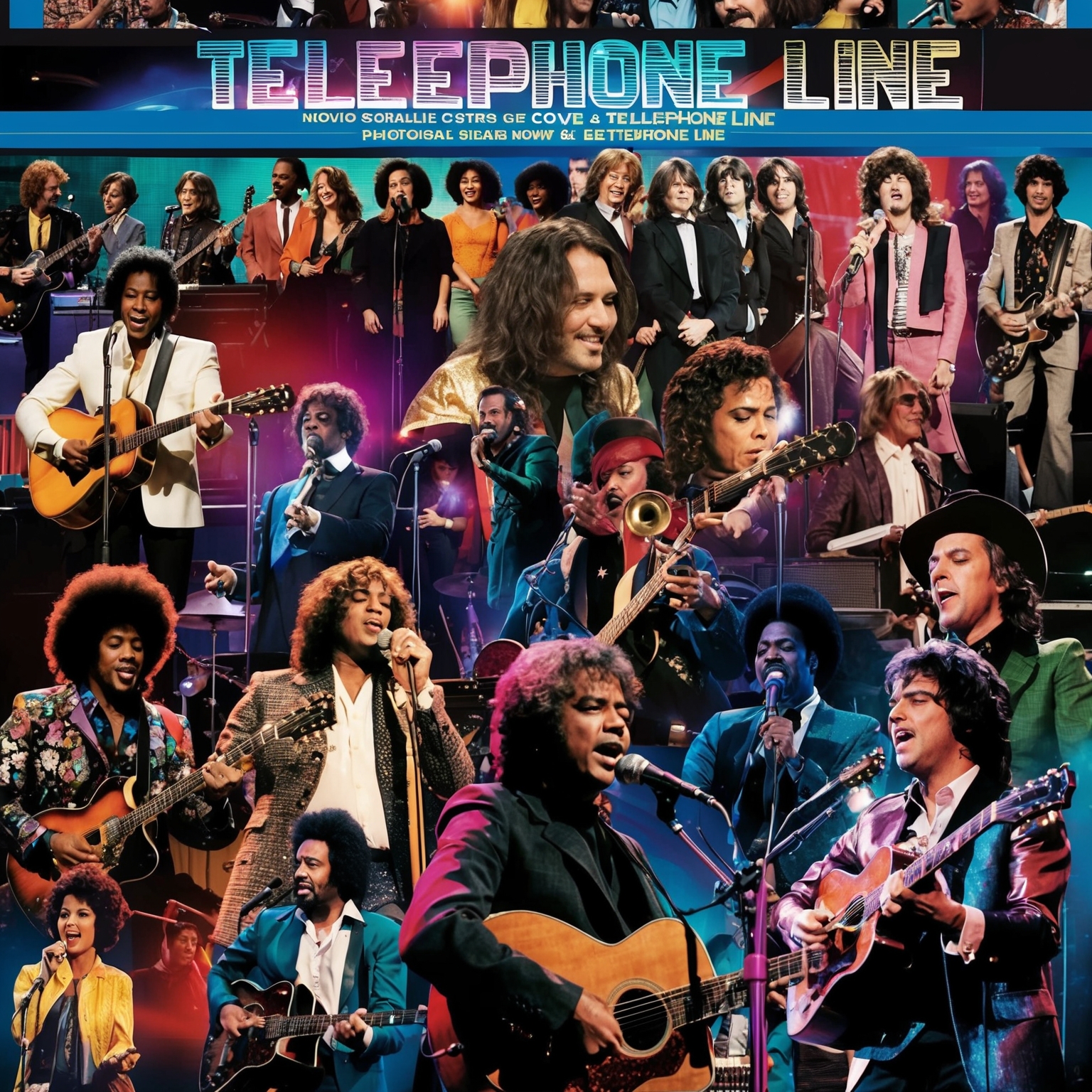
The song ‘Telephone Line’ by Electric Light Orchestra (ELO), though not specifically laden with awards, has undoubtedly etched its mark in the realm of timeless classics with its ethereal soundscape and emotive vocal delivery. Released in 1976 as part of the album ‘A New World Record’, this track did not secure major awards like Grammys or Brit Awards at the time of its release. However, its legacy has resonated over the decades, marking it as a staple of 1970s pop and rock music.
In terms of covers, ‘Telephone Line’ has been reimagined by several artists, thus underlining its broad appeal and enduring significance. One notable cover is by The Move, a band closely connected to ELO’s inception. Although maintaining the original’s emotive pull, The Move’s version offers a fresh perspective on the familiar tune. Additionally, artists like Def Leppard and Pugwash have paid homage to this classic, each bringing their own unique flair, thereby introducing the song to new audiences and generations.
‘Telephone Line’ has enjoyed appearances across various media platforms, further cementing its status as an iconic piece. Most notably, this song found its way into the soundtrack of movies like ‘Billy Madison’ and ‘Joy Ride’, where its nostalgic vibe perfectly complemented the on-screen narratives. Its inclusion in these films illustrates not just its popularity, but also its ability to resonate across diverse contexts and mediums, making it a beloved choice for directors looking to evoke a certain mood.
A Groovy Climb: ‘Telephone Line’ on the Charts
Explore the chart-topping journey of ‘Telephone Line’ by Electric Light Orchestra, including its chart performance, marketing strategies, and cultural impact.
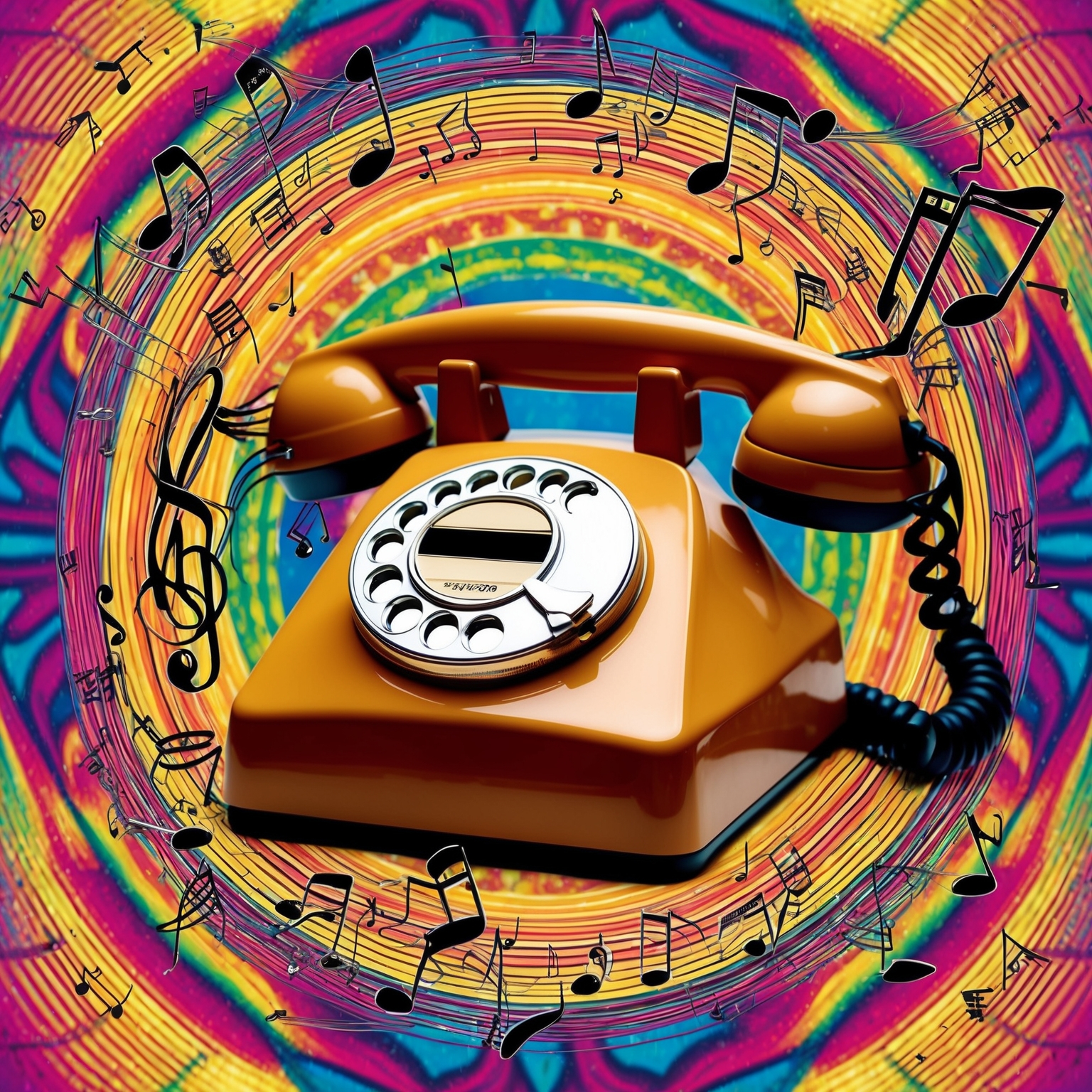
Released in May 1976, ‘Telephone Line’ swiftly positioned itself as a notable entry in Electric Light Orchestra’s discography. Written by Jeff Lynne, the song initially charted modestly before climbing the ranks to its peak positions, ultimately making a significant impact on charts around the world. It became a beloved classic, illustrating the band’s prowess in creating hits that linger long after their release. In the United States, ‘Telephone Line’ reached an impressive No. 7 on the Billboard Hot 100, further cementing ELO’s U.S. success. Across the pond, the song performed equally well, securing a spot in the UK Top 10 and capturing the hearts of listeners, making it a transatlantic hit.
Compared to other chart contenders of the day, ‘Telephone Line’ stood out with its unique blend of rock, pop, and orchestral elements. This track came on the heels of their previous successes such as ‘Evil Woman’ and ‘Mr. Blue Sky,’ but it showcased a mellower, more introspective side of the band. It wasn’t a breakthrough in the traditional sense, since ELO had already established a strong presence, but it was certainly a pivotal entry in their catalog. The song contributed to maintaining their momentum, ensuring that the Electric Light Orchestra stayed at the forefront of the music scene during the late ’70s.
The success of ‘Telephone Line’ was bolstered by strategic marketing efforts. The label capitalized on the burgeoning popularity of FM radio and prime-time television appearances to boost the song’s audience reach. Coupled with positive critical feedback, the song garnered much attention, receiving accolades for its innovative production and emotional depth. Over time, ‘Telephone Line’ has secured its place as a cult favorite among fans, and its legacy is evidenced by how frequently it is referenced and covered by artists even in contemporary settings. Its inclusion in multiple ‘best of’ playlists and strong performance in streaming platforms today speaks volumes of its sustained appeal.
Exploring the Visual Journey: Unpacking the Video (That Never Was)
Though “Telephone Line” lacks an official music video, fans have ingeniously visualized its themes through imaginative fan-made videos and live performances.
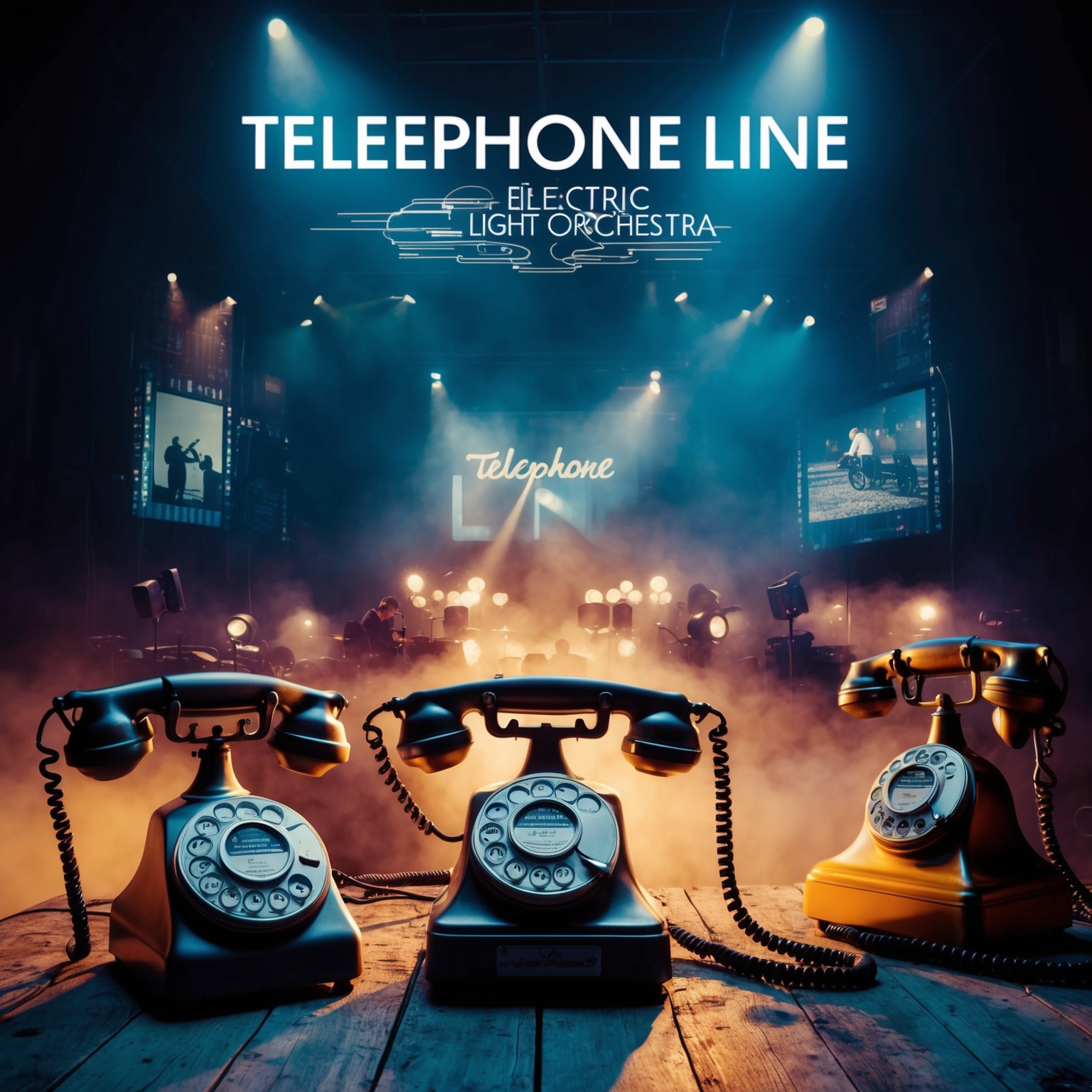
While the Electric Light Orchestra’s iconic song, “Telephone Line,” hails from an era before music videos became an essential part of the music industry, its absence hasn’t prevented fans from expressing their visual interpretations of the track. Despite Jeff Lynne and the band’s distinctive aesthetic being captured in various promotional materials, there is no official music video for “Telephone Line.” However, the imagination of ELO’s fanbase fills this gap with creativity and enthusiasm.
Instead of an official music video, “Telephone Line” has been visualized through several fan-made videos that ingeniously capture the song’s essence. These fan creations often juxtapose nostalgic footage, vintage telephones, and scenes from old films, enhancing the longing and emotion conveyed in the song. Through these creative projects, the fans breathe a new perspective into the track, aligning visuals with the haunting melodies and heartfelt lyrics.
The fan-driven approach to visualizing “Telephone Line” also speaks to the song’s timeless appeal and its ability to resonate across generations. In the absence of a formal video, live performances of the band offer glimpses into how the song could be represented. Energetic stage lights and intimate settings during these performances present another dimension for fans to connect with the music. Always a crowd favorite, “Telephone Line” remains a staple in setlists, underscoring its enduring popularity.
Exploring the Sonic Architecture of ‘Telephone Line’
Dive into the intricate musical structure of ELO’s ‘Telephone Line,’ exploring its key, tempo, and unique instrumental arrangement.
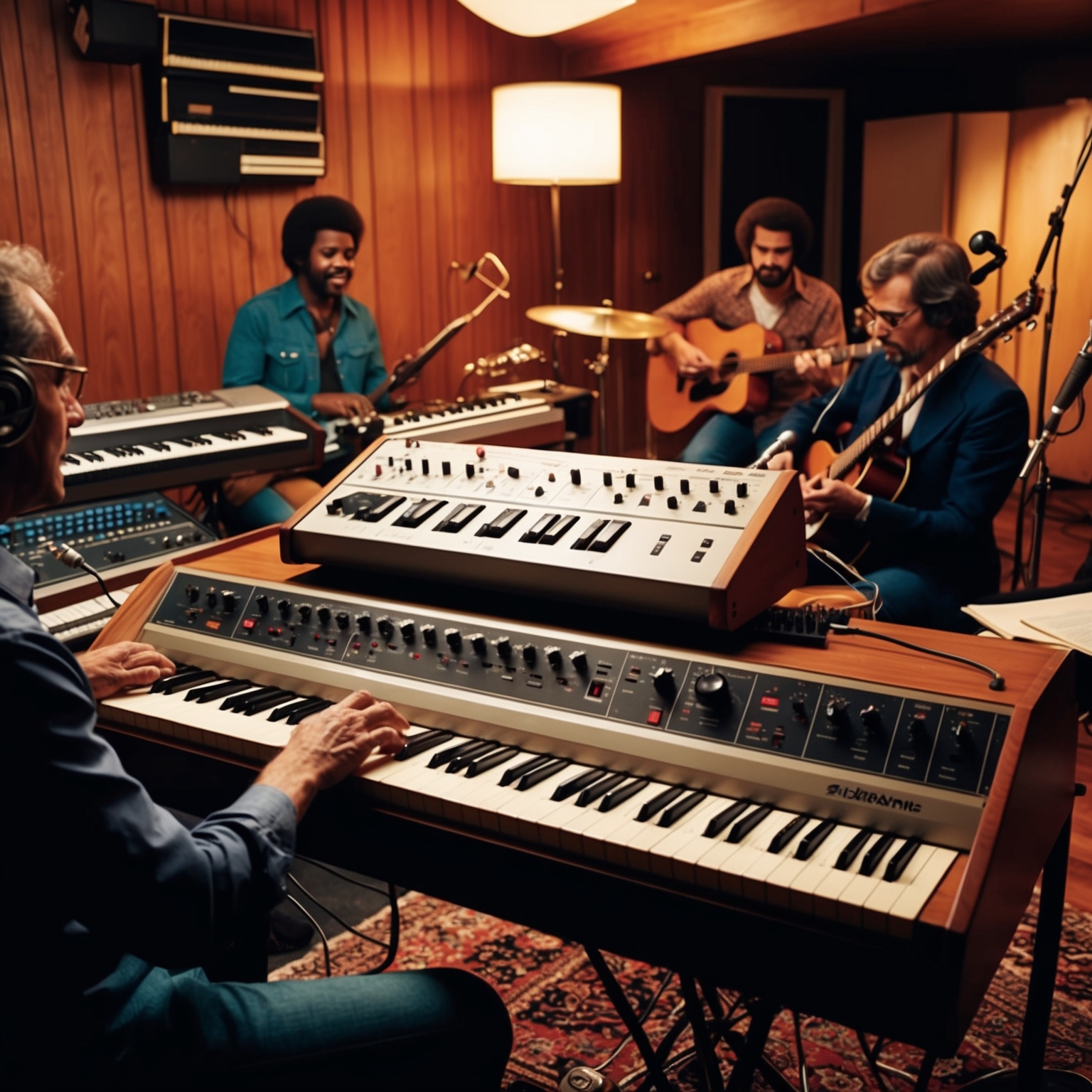
The song ‘Telephone Line’ by Electric Light Orchestra is a fascinating study in musical structure that showcases Jeff Lynne’s deft command over melody and harmony. The song is written in the key of C major, a choice that allows for a warm, nostalgic tonality. The chord progression is a classic I-IV-V structure with variations that create a rich harmonic palette typical of ELO’s sound. The tempo is leisurely set in a slow 66 beats per minute, which underscores the song’s reflective and emotive nature.
The melody of ‘Telephone Line’ is crafted to pull at the listener’s heartstrings, with repeated motifs that echo the sense of longing and isolation conveyed by the lyrics. The harmony is lush, featuring overlapping vocal harmonies that are a signature of the band’s style. The rhythm is steady, almost hypnotic, drawing the listener into the narrative of the song.
The instrumentation is one of the song’s standout features. Jeff Lynne’s use of a synthesizer to emulate a telephone line’s busy signal was innovative for the time and sets the stage for the rest of the track. Alongside, the electric guitar, strings, and a subtle piano provide layers of texture, creating a soundscape that is both intricate and inviting. ELO’s choice of instruments builds a bridge between rock and orchestral traditions, fostering a unique sonic identity.
Within the context of ELO’s discography, ‘Telephone Line’ marks a cohesive moment in their evolution, blending orchestral elements with rock in a seamless manner. Compared to earlier albums, there is a noticeable maturity in the composition and thematic depth, reflecting the band’s growth and experimentation. This track stands as one of their quintessential pieces, illustrating both their innovative spirit and respect for classic musical forms.
Exploring the Emotional Depths of ‘Telephone Line’
An analysis of ‘Telephone Line’ by ELO delves into themes of longing and nostalgia, using literary devices to enhance its poignant narrative of love and missed connections.
Have you been alright through all those lonely, lonely, lonely, lonely
Lonely nights? That’s what I’d say
I’d tell you everything if you’d pick up that telephone
Yeah, yeah, yeah
Hey, how ya feelin’?
Are you still the same? Don’t you realise the things we did, we did
Were all for real? Not a dream
I just can’t believe they’ve all faded out of view
Yeah, yeah, yeah, yeah
Ooh-woo-ooh-ooh-ooh-ooh
Doo-wop, doo-be-doo-doo-wop, doo-wah, doo-lang
…
******* This Lyrics is NOT for Commercial use *******

The lyrics of ‘Telephone Line’ by Electric Light Orchestra capture a profound sense of longing and emotional vulnerability, reflecting the theme of missed connections and nostalgia. The recurring inquiries ‘Hello, how are you?’ and ‘Are you still the same?’ suggest an attempt to bridge a gap with a past love, anchoring the song in a deeply personal space. Through its dialogue-like format, the song uses the telephone as a symbol of hope and disappointment, capturing the universal feeling of seeking closure or reconnection.
Metaphorically, the telephone line represents a lifeline to emotional salvation, yet its unanswered state becomes a metaphor for unreciprocated communication, lost opportunities, and a lingering desire that remains unfulfilled. The lyrics are crafted in first-person perspective, intensifying the emotional impact. The conversational tone makes it relatable, allowing listeners to project their own experiences onto the protagonist’s narrative. The repeated ‘yeah, yeah, yeah’ adds a layer of frustration and resignation, reinforcing the emotional weight carried by the narrator.
Jeff Lynne, the brain behind ELO, employs various literary devices to enhance the lyrical quality, including alliteration (‘Lonely, lonely, lonely, lonely nights’) and onomatopoeia (‘doo-wop, doo-be-doo-doo’). These elements not only serve to embellish the melody but also strengthen the emotional resonance of the heartbreak being expressed. As with many ELO songs, the fusion of nostalgia with futuristic sounds is a hallmark, drawing listeners into a timeless emotional journey while highlighting the human propensity for emotional connections in the age of technology. It’s a gentle reminder of the emotional intricacies involved in relationships and the fleeting nature of dreams and realities.
Did you know “Telephone Line” by ELO mimics a dial tone using synths to evoke nostalgia? ?? Dive into the magic of symphonic rock! #ELO #FunFact #ThrowbackThursday https://bit.ly/41gMgqU
Click to Tweet

